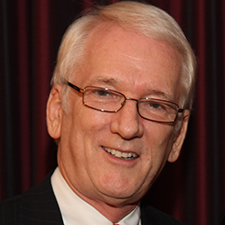DBMI Professors Ted Shortliffe, Vimla Patel
Selected As Keynote Speakers For AIME 2020 Conference
|
Senior Research Scientist and Director, Center for Cognitive Studies in Medicine and Public Health, The New York Academy of Science Human Cognition: A Guide to the Evolution of AI in Medicine Abstract Since medical practice is a human endeavor, rapid technologic advances create a need for bridging disciplines to enable clinicians to benefit from them. In turn, this necessitates a broadening of disciplinary boundaries to consider cognitive and social factors related to the design and use of technology in the medical context. My awareness of these issues began when I studied the development of models of medical expertise in the late 1980s. By the next decade, as I learned about increasing efforts by others to offer clinical expertise by computer, I began to connect my own studies of medical expertise to the development of expert systems and initiated work at the intersection of these disciplines. Subsequently, we began to witness an increasing emphasis on clinical workflow and socio-technical considerations among the design issues for the AIM community. My group’s cognitive research accordingly began to focus on clinical environments that were characterized by complexity, especially due to requirements that involve multitasking, rapid decision making, and intense stressful demands. In health care there has traditionally been a gulf between technologic artifacts and practitioners. Technologies mediate human performance and transform how health practitioners, individuals, and groups think and make decisions. Our data clearly show that they do not merely augment, enhance, or expedite performance but profoundly influence the human mind. One lesson learned from the last 30 years of research on medical cognition in our laboratory is the remarkable importance of cognitive factors that determine how health professionals comprehend information, solve problems, and make decisions. Cognitive investigations into the process of medical reasoning have made significant contributions to design of clinical AI systems. AI’s role in medicine is a frequent topic of discussion by health practitioners, the scientific community, vendors, and the general public. However, we still have much to learn regarding the nature of such technologies intended for health professionals. We have not focused adequately on how AI tools can influence the cognitive processes of these practitioners. Our focus on automation and efficiency has tended to neglect some of the critical clinical-safety issues related to the intersection of technology with how expert users think and behave. My talk will elaborate on what we have learned about how medical practitioners acquire and utilize expertise, thereby defining key lessons and challenges for the development of usable, useful, and safe AI systems to augment human intelligence in the clinical world. |




